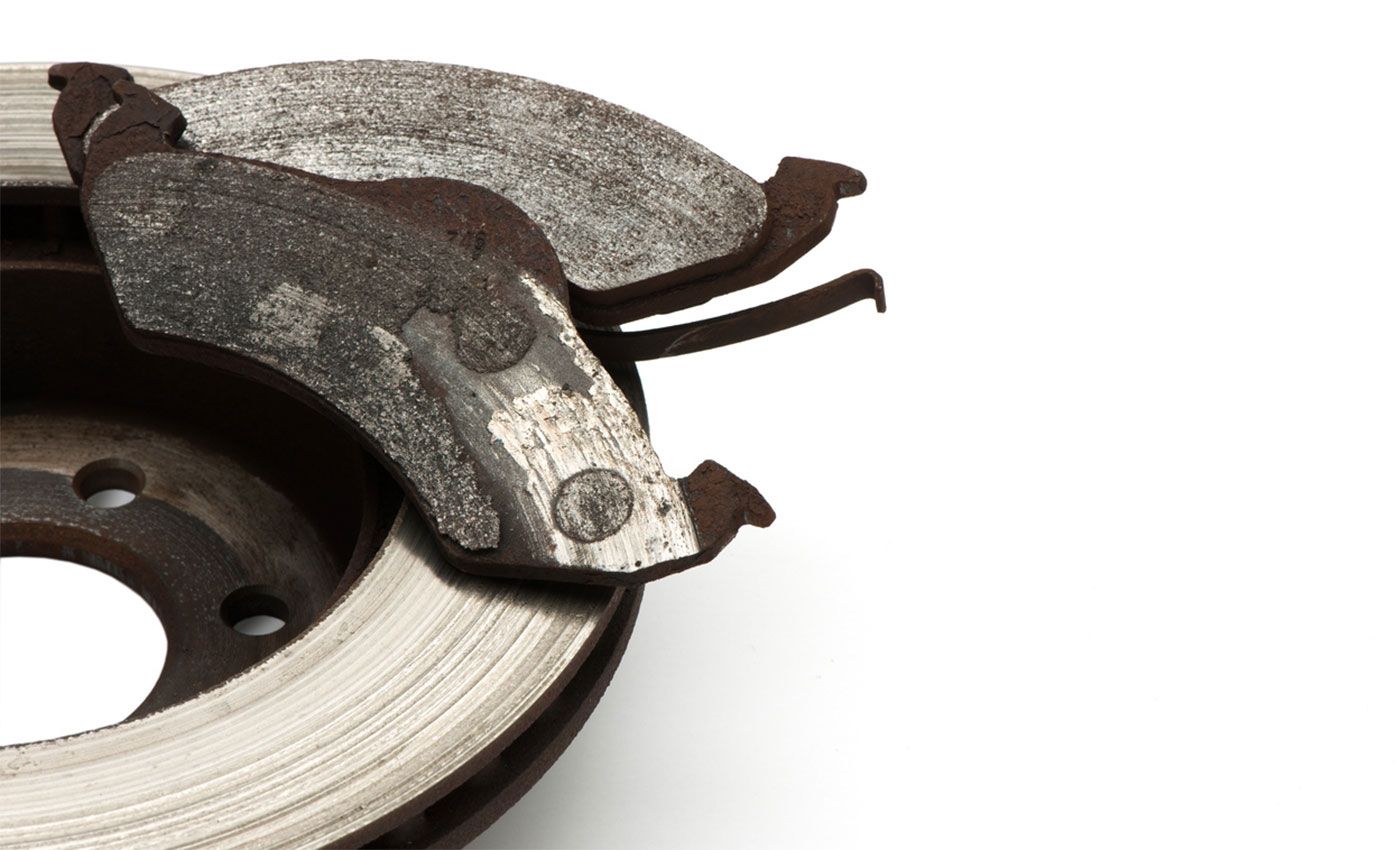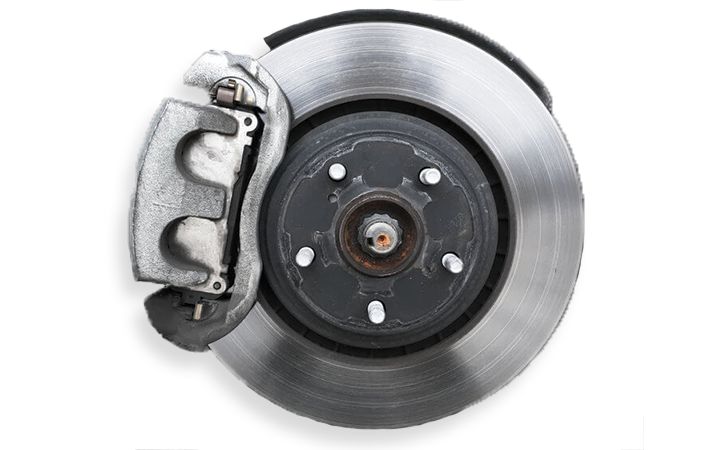
All or One: Should You Replace All Brake Pads At Once?
Can you replace just one set of brake pads? Answer that question and more as you learn why braking system maintenance is crucial for safety and performance.
Read More
When you apply your vehicle's brakes to stop at a traffic light or avoid a road hazard, you count on them to keep you, your passengers, and your vehicle safe. But you likely don’t give much thought to how they work.
There are two types of car brakes: disc brakes and drum brakes. Both disc brakes and drum brakes work by using friction and resistance to convert kinetic energy into heat energy. A hydraulic system creates that friction. Fluid moves through brake lines in the hydraulic system to create pressure, pushing disc brake pads against the brake rotors and stopping the car. Drum brakes work the same way, with brake shoes pressing against the drum. All cars come equipped with four brakes: two rear brakes and two front brakes. In most cars, front brakes are primarily responsible for halting your vehicle and provide 60% to 90% of the vehicle's stopping power.

It's important to have your brakes checked whenever you notice your brakes aren’t working properly or showing signs of wear. But you shouldn't wait to have your brakes checked until there's a problem! Routine brake maintenance should be done at least once a year. A professional at Firestone Complete Auto Care can inspect components like the:
Give your vehicle a break and stop by your neighborhood Firestone Complete Auto Care for a free brake check* today. *Brake service costs extra.
Over time, brake rotors and brake pads wear out. Brake pads can last 25,000 to 65,000 miles, depending on your driving behavior, while brake rotors can last 15,000 to 70,000 miles before they need to be replaced or resurfaced. A trained professional at Firestone Complete Auto Care can determine whether your brake pads and rotors need to be serviced. To prevent your brake system — including the brake pads and rotors — from stopping you in your tracks, head to your local Firestone Complete Auto Care for a free brake check and regular maintenance.
Keep in mind that driving with worn brake pads can lead to damage of the brake rotors and calipers, decrease braking response or cause your vehicle to shake and vibrate when you try to stop.
Your vehicle has disc brakes or drum brakes, or a combination of the two. Most modern cars come with disc brakes. Typically most front brakes on vehicles sold in the U.S. are disc brakes, but you may find the rear brakes are drum brakes.
Why are disc brakes better? They typically last longer than drum brakes, do abetter job of dissipating heat, and hold up better in wet weather.
These days, you’ll find that most newer vehicles come with an anti-lock braking system. This system helps prevent the brakes from locking up. Brakes locking up can lead to skidding and a loss of steering control.
Damaged brake rotors or drums can cause your vehicle to shake when you brake. However, other factors can cause your vehicle to shake when you apply the brakes, including:
If your vehicle is shaking while braking, the issue is likely brake related or due to loose or worn steering/suspension components. No matter what’s causing your car to shake when you brake, an expert technician at Firestone Complete Auto Care can diagnose the problem.

Can you replace just one set of brake pads? Answer that question and more as you learn why braking system maintenance is crucial for safety and performance.

It’s terrifying when your brakes lock up. Learn the potential causes of brakes locking up while driving, how to prevent it in the future, and how to react when they do.

Brakes not slowing you down as they used to? Don’t let the unthinkable happen! Discover the common causes of brake lag, their symptoms, and how to resolve them!